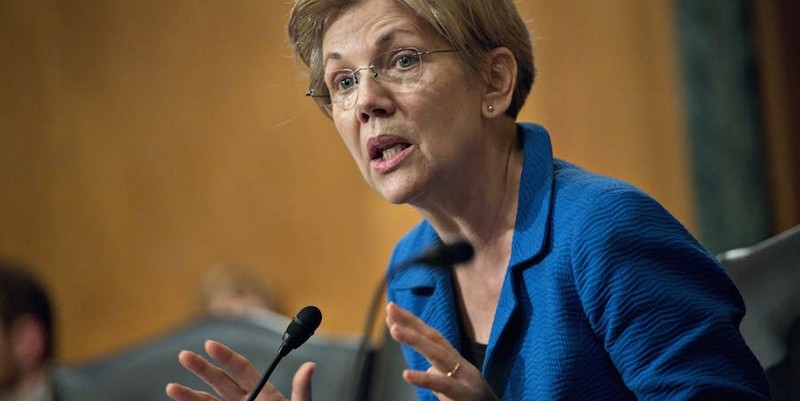Tensions between Sen. Elizabeth Warren, D-Mass., and Securities and Exchange Commission Chairwoman Mary Jo White mounted Tuesday.
In an exchange during a Senate Banking Committee hearing on SEC oversight, Ms. Warren questioned why the SEC has spent two years on a project studying the effectiveness of corporate disclosures.
Ms. Warren said there's no evidence investors have called for the disclosures to be streamlined, and she asserted Ms. White was doing the bidding of the U.S. Chamber of Commerce and its business allies.
“A year ago,
I called your leadership at the SEC extremely disappointing,” Ms. Warren said. “Today, I am more disappointed than ever.”
Ms. White countered that the disclosure review was mandated by legislation and that it would ultimately benefit investors.
“I am disappointed in your disappointment,” Ms. White told Ms. Warren after the lawmaker's time expired and as the panel was moving to the next senator. “And I could not disagree more with your characterization of what we're trying to do to improve our disclosure requirement for investors to make it better.”
HURTING AMERICA
It was an unusually sharp exchange for a Senate hearing, with the two parties talking over each other at one point. Ms. White declined to comment further, as she departed the hearing room followed by reporters.
Ms. White also took hits from other Democrats, who pressed her to propose a regulation that would require companies to disclose their spending on political campaigns. She has not put such a rule on the SEC agenda.
“You are hurting America,” Sen. Charles Schumer, D-N.Y., told her. “I wish you would change your mind.”
The tension between Ms. Warren and Ms. White would seem to remove any lingering doubt that Ms. White would be replaced should presumptive Democratic presidential nominee Hillary Clinton become president.
It's likely a new president would appoint his or her own SEC chair anyway. With Ms. Warren, an important ally for Ms. Clinton, fiercely opposed to Ms. White's management of the agency, the chances increase in a Democratic administration.
If her tenure ends early next year, it will be difficult for Ms. White to complete an ambitious rulemaking timeline, including proposing a regulation that would raise investment advice standards for brokers.
Sen. Jon Tester, D-Mont., asked Ms. White whether the SEC would be able to propose a fiduciary duty rule before the end of the Obama administration.
“I am committed to moving it as fast and as well as I can,” Ms. White said. “It's a longer route than that.”
FIDUCIARY RULE
The Labor Department
has finalized its own rule that would require all financial advisers to retirement accounts to act in their clients' best interests, or as fiduciaries.
(More: Everything you need to know about the DOL fiduciary rule as it develops)
The Dodd-Frank financial reform law gave the SEC the authority to promulgate its own rule for all retail investment advice. The agency has not been able to advance a proposal in six years due to disagreement among the five SEC commissioners.
Republican opposition to the DOL rule again emerged at the Senate hearing. Sen. Mike Rounds, R-S.D., asked Ms. White whether the regulation would make it more difficult for investors with modest accounts to obtain advice.
“Certain changes [to the rule] were made in response to that concern,” Ms. White said. “To a certain degree, you need to see what happens as rules are implemented.”
At the end of the hearing, Ms. White did get a positive review from a lawmaker.
“I am really appreciative that you've stepped up and taken the chair,” said Sen. Heidi Heitkamp, D-N.D.







